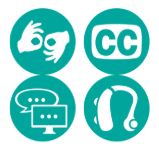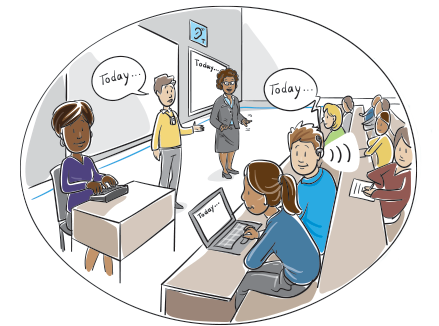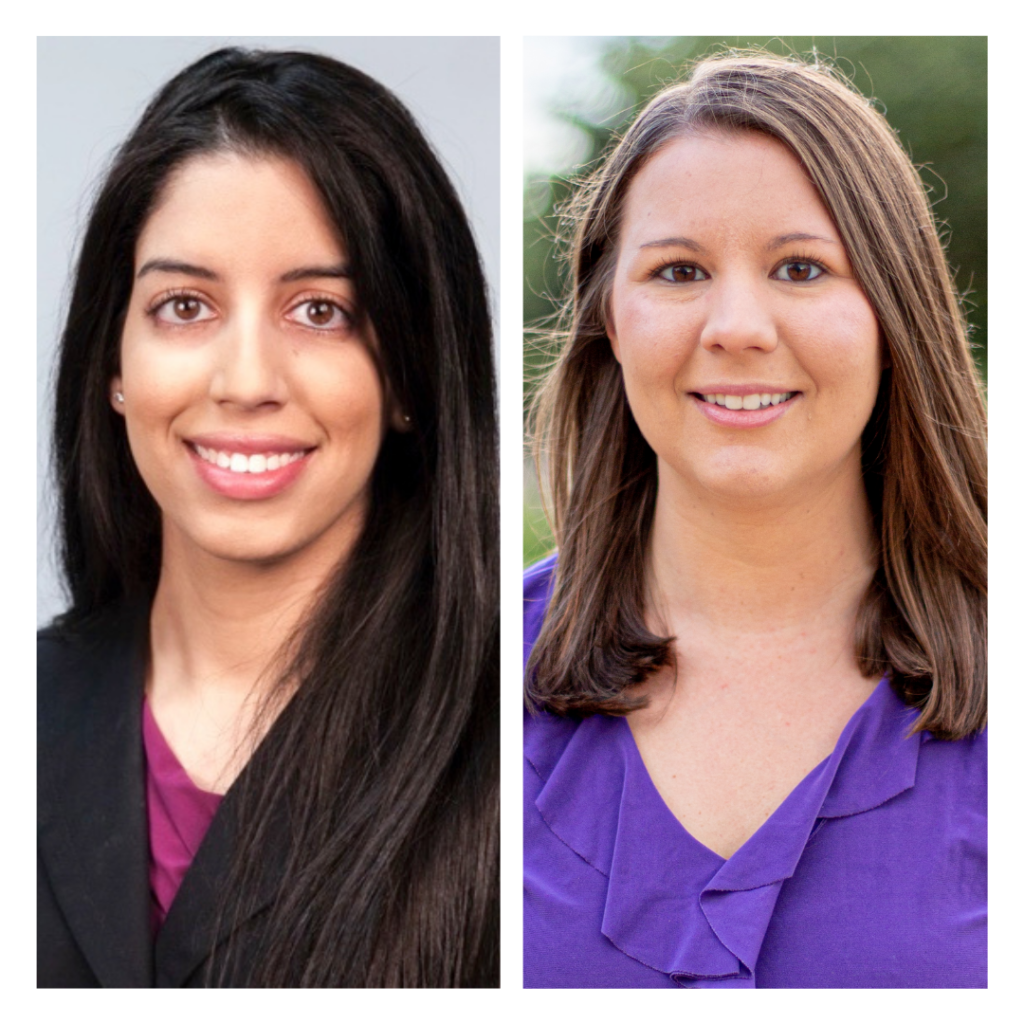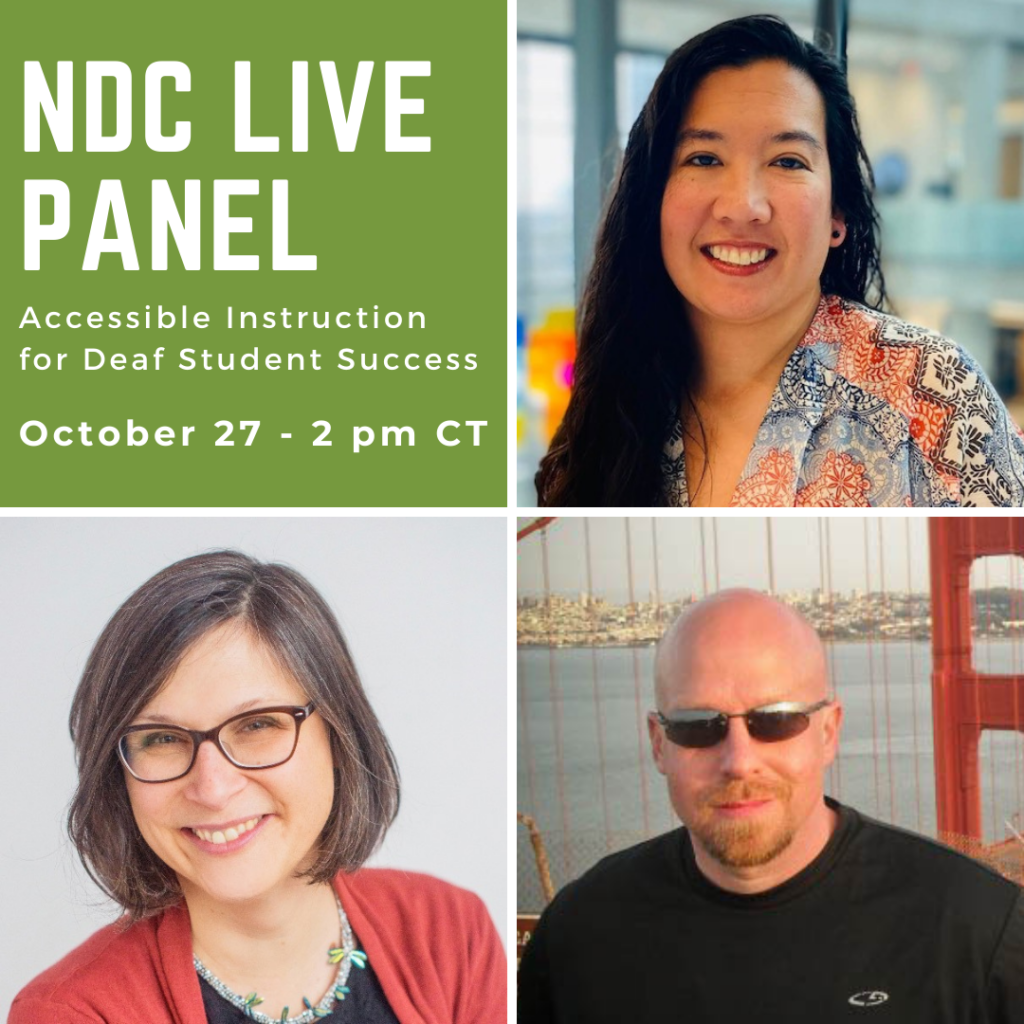Getting the Semester Started: Accommodation Decisions with Deaf Students

Every semester is an opportunity to connect with students. For students who request accommodations, the interactive process is an important dialog. NDC has put together information to help disability service providers maximize these interactions, strengthen accessibility, and implement accommodations for students in their semester ahead.
The Importance of Student Feedback to Improve Campus Access

Every deaf student is different, with varying communication preferences that depend on people, setting, and contexts. With this in mind, disability services offices must take into consideration the experiences of deaf students to determine the most effective accommodations for each situation. To do this, you need to create opportunities for students to share their experiences and feedback about the accommodations they are using. Encouraging and actively seeking this feedback will strengthen student engagement and ensure students have equitable opportunities to participate in all aspects of the college experience.
Looking Beyond Academic Access
The legal minimum, while perhaps legally sufficient, does not ensure deaf students have full access to the same experience as their peers, both in and out of the classroom, nor does it guarantee positive outcomes. To foster inclusive settings for all students to thrive that go beyond just being “good enough,” access must be viewed as a multifaceted framework that is part of the policies and practices at every level of the institution.
Navigating accommodations in medical or clinical internship settings

Medical or clinical internships are an important step in getting a higher education degree or post-graduation employment. For deaf students, navigating communication access in these settings is vital to achieving #DeafSuccess. In fact, how to best get this access is a frequent inquiry through our NDC | help team. Our team has gathered information and resources to assist in planning, coordinating, and collaborating with students and sites to ensure the best possible internship experience.
Prepare for the Fall Semester by Improving Strategies for Coordinating Accommodations

As Fall semester approaches, the National Deaf Center on Postsecondary Outcomes (NDC) is here to help! Whether returning to physical classes, staying virtual, or using a hybrid model, effective coordination and management of accommodations across different settings is complex and multifaceted.
Effective Tools for Talking About Accommodations with Deaf Students

As colleges, universities, and training programs get ready for the fall semester, it’s time to check in with deaf students about their accommodations.
Get the Ins and Outs of Accommodations on NDC’s New Accommodations 101 Page

Accommodations are not one-size-fits-all, and are as varied as deaf people themselves. But that doesn’t mean that finding the right combination of accommodations needs to be difficult or confusing.
NDC has launched a new Accommodations 101 page to help disability services professionals, educators, employers, and deaf people understand all aspects of accommodations.
NDC Live Event on November 17: Does Auto Captioning Effectively Accommodate Deaf People?

There has been a significant increase in the use of captioning services for online learning due to COVID-19 pandemic. To keep up with the demand, many educational entities have turned to Automatic Speech Recognition (ASR) technology to provide equitable and timely accessibility for students. While ASR has seen rapid developments in recent years, the gaps in the technology compromises equity access for deaf students. This presentation is designed to give answers to commonly asked questions from professionals in education settings.
Live Panel October 27: Accessible Instruction for Deaf College Students During COVID-19 and Beyond

Ensuring that every student has access to your instruction is more important than ever, yet can be more challenging due to the pandemic — whether you’re teaching online, in person, or a little bit of both.
Get Answers About Online Accommodations with NDC Live on Sept. 15

Why can’t I use auto-captions? What does “effective communication” mean? How do I pin the interpreter?
Get answers to these frequently asked questions and more with NDC Live: Remote Services, a free, online event featuring members of the National Deaf Center on Postsecondary Outcomes’ (NDC) help team, Stephanie Zito, MS, NIC and Lore Kinast, MA. Their presentation, based off their presentation at the AHEAD 2020 Conference, will focus on remote service providers such as interpreters and speech-to-text professionals.
5 Tools for Disability Service Providers at Colleges and Universities Serving Deaf Students

A new semester can be overwhelming, but NDC is here with you. NDC can help streamline procedures to enhance disability services offices working with deaf students, with guides to help you build request forms, create a student absence policy and more.
More Than Accommodations: Interpreting Task Force Explores Equitable Access

NDC facilitated a Postsecondary Interpreting Task Force on Jan. 14-15 to examine central questions surrounding equitable access — What does it look like? What are current standard practices, and what strategies should professionals consider to ensure deaf students are able to actively participate in all aspects of their continued education?





